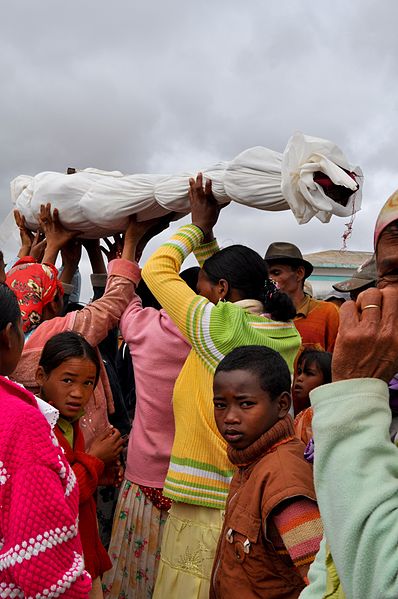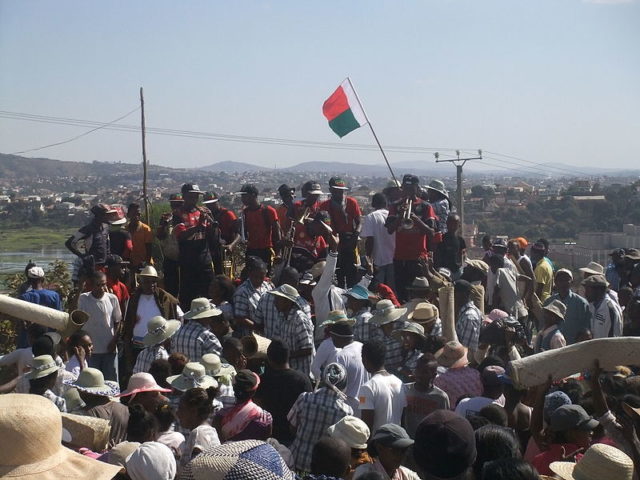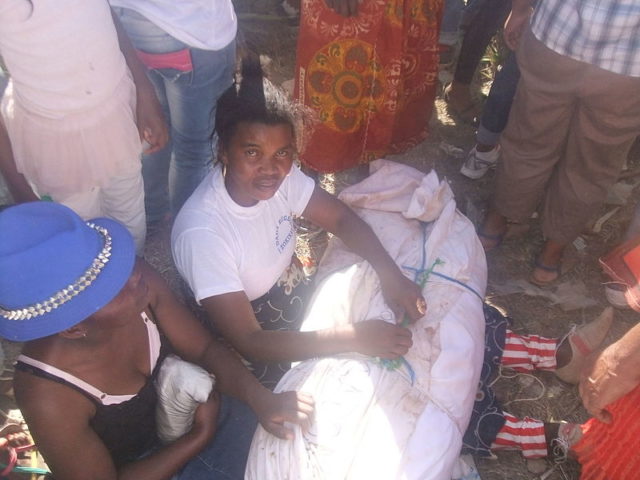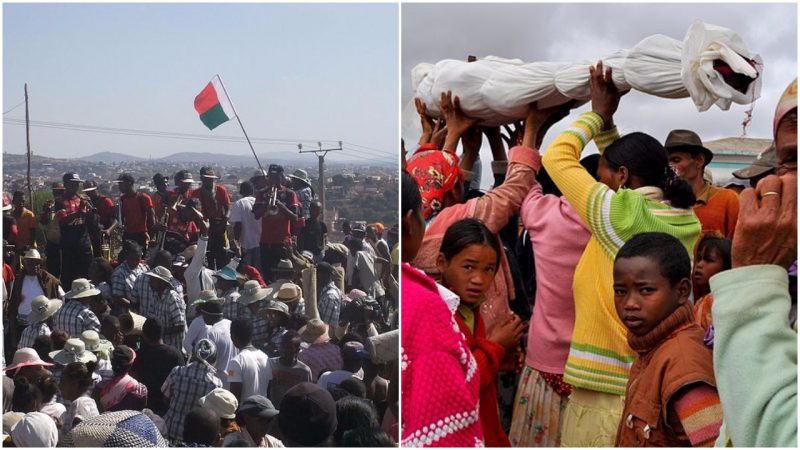Many cultures around the world practice funeral rituals that are radically different from Western concepts of death and burial. While some of these rituals may seem unusual and macabre, they are a valuable cultural heritage that helps historians, anthropologists, and philosophers to untangle the mysteries of the human race and its numerous belief systems.
A curious funerary ritual named “Famadihana” is practiced by the Malagasy people, an ethnic group that forms nearly the entire population of the giant African island of Madagascar. During the Famadihana, which roughly translates to “the turning of the bones”, the Malagasy people bring the bodies of their ancestors out of their crypts or dig them out of their graves and rewrap them in fresh cloth.

After the bodies are rewrapped, the families carry the bodies through the streets and dance with them accompanied by live music. Animals are sacrificed during the ritual and the meat is distributed to guests and family members, and the community elders explain the importance of the ritual to the younger generations of the Malagasy people.
Although Famadihana is a ritual that revolves around the dead, it is seen as a ritual of joy and a familial gathering. It takes place every 7 years and is based on the belief that the dead can join the spirit world of their ancestors only when their bodies decompose completely.
The Malagasy believe that human bodies are made from the bodies of their ancestors, and therefore the bodies of their dead need to be cared for so that their souls may ascend into a peaceful afterlife.

The belief system of the Malagasy people is ancient, but the ritual of Famadihana emerged in the early 17th century. When early colonial missionaries reached Madagascar, they tried to force the Malagasy people to abandon the ritual, but the practice managed to survive.
At the beginning of the 20th century, the Catholic Church ceased to object to the ritual and declared it an important cultural practice.

Nowadays the practice of Famadihana is on the decline for practical reasons. Namely, the dead have to be wrapped in fresh silk cloth during the ritual, and the price of silk has spiked in the recent years.
Madagascar’s continuously struggling economy has affected even the most prominent traditions. However, the most traditional Malagasy families continue to practice Famadihana in order to show their respect for their ancestors.
